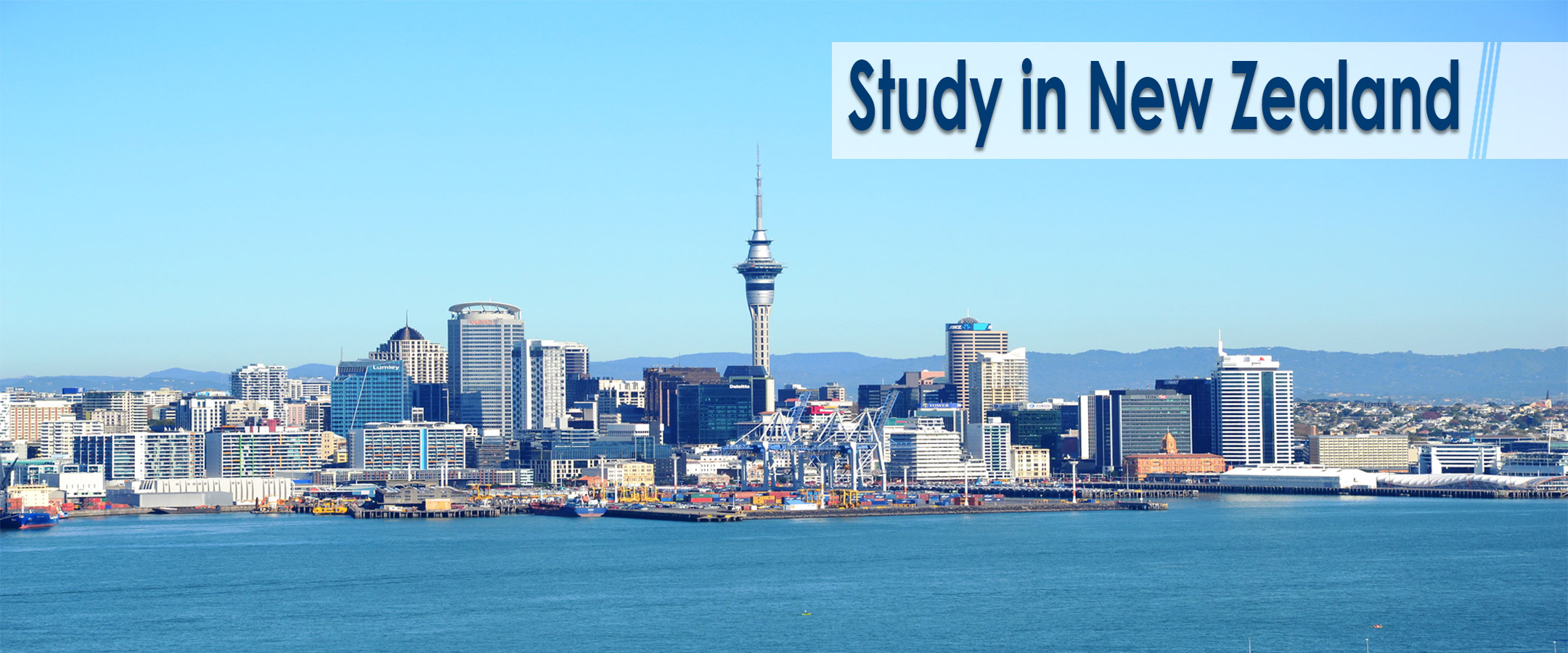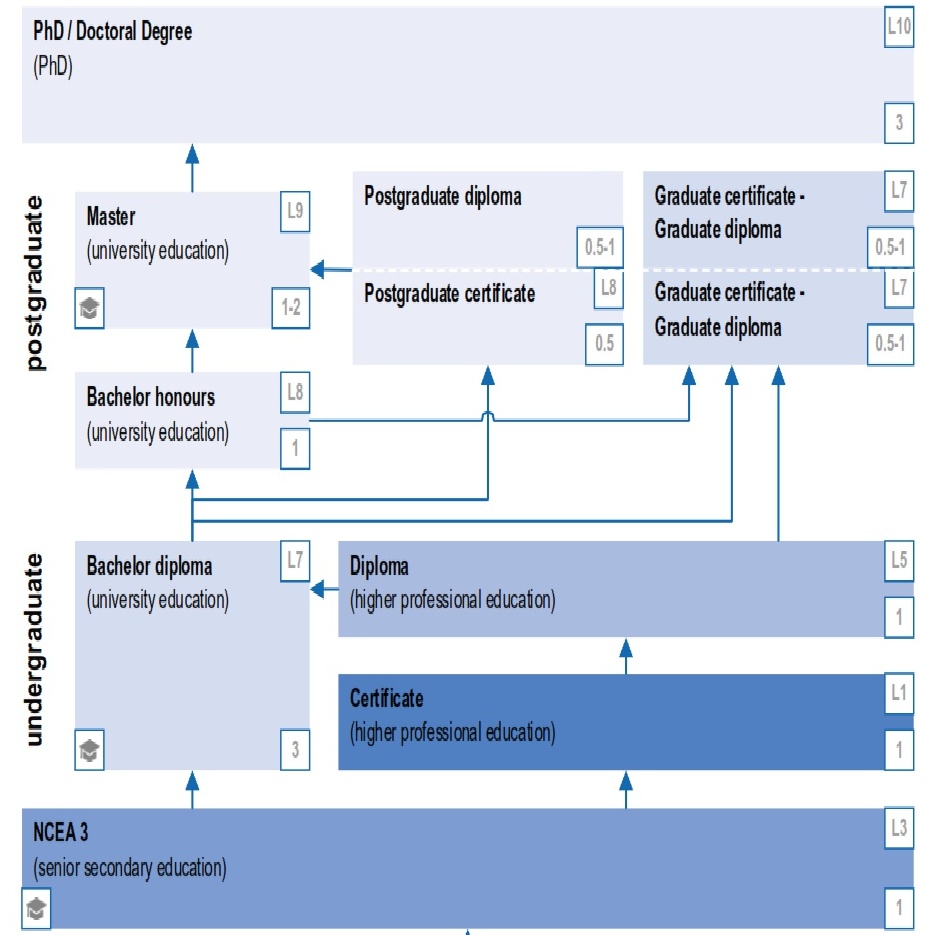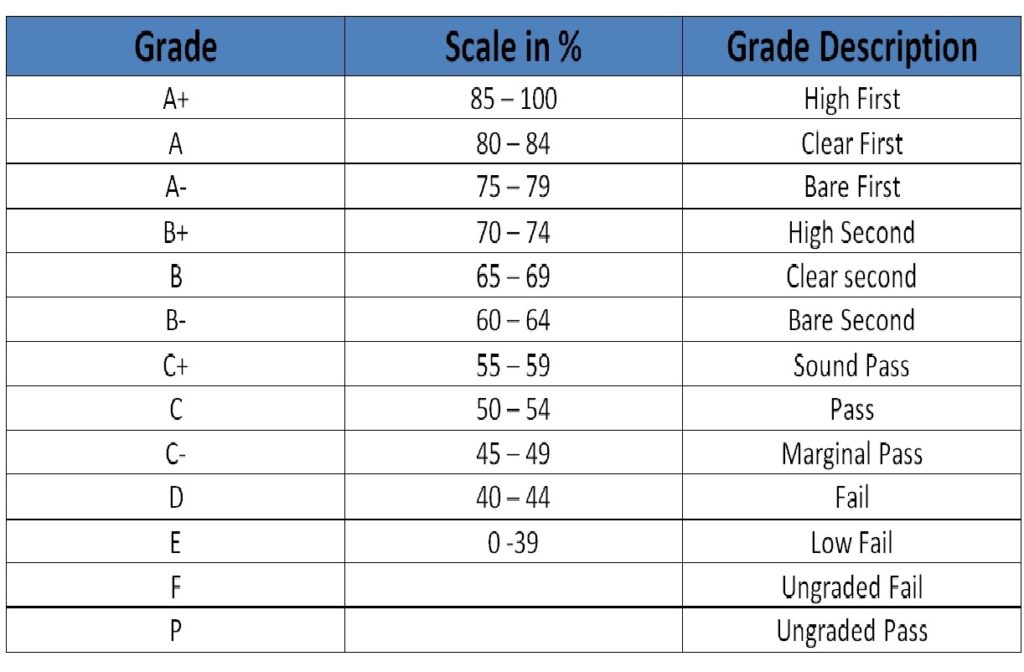Education System in New Zealand
The New Zealand education system is currently ranked 7th in the world, far better than many OECD countries. As a former British colony, New Zealand education system is strongly based on the European system, with some minor differences. New Zealand has 8 state-funded universities, 16 institutes of technology and polytechnics and nearly 550 private training establishments which include English language schools. New Zealand education system reflects their unique and diverse society, open to different abilities, religious beliefs, ethnic groups, income levels and ideas about teaching and learning.
Grading System in New Zealand:
Types of Universities:
Universities:
Universities in New Zealand provide degree and postgraduate education. And they work with communities, business, industries and the research community to share and apply knowledge, and promote learning. They host’s the country’s centers of Research Excellence. They also provide sub-degree and community programmes.
Institutes of Technology and Polytechnics:
Institute of Technology and Polytechnics provide a very wide verity of technical, vocational and professional education. They also do research, particularly applied and technological research.
Wānanga:
New Zealand’s 3 Wānanga provide quality education using Māori ways of teaching and learning. And in doing so contribute towards the survival and well-being of Māori as a people. Wānanga also has an ongoing role to play in re-engaging learners into education.
Private Training Establishments (PTEs):
PTEs operate by a wide range of companies, trusts and other entities, and offer post-school education or vocational training. These are diverse in terms of their scale of operation, location, ethnicity, culture and areas of educational expertise.
Types of Degree:
Bachelor’s Degree:
The nominal length of a bachelor’s degree is usually 3 years, requiring a total of 360 credits from levels 5 to 7, with at least 72 credits in 7th level. The name Bachelor’s degrees awarded usually refer to the program taken, such as Bachelor of Accountancy or Bachelor of Social Work etc. It is also possible to take a ‘conjoint’ programme, during which two bachelor’s programmes with subjects in common are completed over 4 years, and the student is awarded two degrees.
Bachelor Honors’ Degree:
A bachelor Honors’ Degree may be either a 480 credits degree with nominal duration of 4 years, or a discrete 120 credits degree of 1 year following a 3 year bachelor’s degree. It has a minimum of 120 credits at level 8, with a research component that represents 30 credits at that level. An honors’ programme includes more detailed study of the student’s major.
Master’s Degree:
A master’s degree can be obtained after a 2-year postgraduate and/or research programme, with a 3-year bachelor’s programme as an admission requirement. The admission requirement for master’s programmes of fewer than 240 credits is usually a Bachelor Honors’ Degree, or a Bachelor’s degree with relevant work experience.
PhD:
All New Zealand universities provide programmes up to and including doctorate level. To qualify for admission, candidates must have completed an honors’ bachelor or have a research master’s in a relevant subject. A doctoral degree takes an average of 3 to 4 years of study and research to complete and normally consists of 360 credits (level 10).












